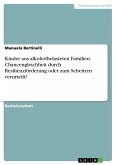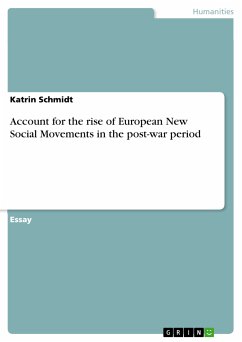Seminar paper from the year 2005 in the subject Sociology - Individual, Groups, Society, grade: 1,0, University of Auckland (Department of Sociology), course: Sociology of Emotions, language: English, abstract: The social and sociological significance of 'guilt' - Die gesellschaftliche und soziologische Bedeutung von 'Schuld' - dargestellt an der deutschen Schuldfrage nach dem 2.Weltkrieg To begin with the notions and definitions of guilt as used in several disciplines of the social sciences will be examined. This is to draw a distinction between the various assessments of guilt within the social sciences and to clarify the sociological approach within the following analysis. In a next step the common conceptualisation of guilt as an individual emotion will be opposed to the assessment of guilt as a group or collective emotion. Theories and study findings will be used to illustrate the conditions and prerequisites for the experience of collective guilt as well as the occurrence of guilt as a result of group identification. In addition a further distinction of guilt regarding the means of responsibility will be drawn. After having analysed the different notions of guilt theoretically, the concept of collective guilt will be examined in its appearance in German society after the Second World War. By examining Germany’s history and the shifts within society it will be highlighted how the societal conditions and the perceptions of guilt influence each other immensely. The main attention will be given to the German recognition of collective guilt from immediately after the war into the present. It will be shown that guilt, although commonly conceptualised as an individual emotion also has to be considered as apparent in group and collective settings. This claim of broadening the sociological conceptualisation of guilt to the collective level will be validated by analysing and examining Germany’s history after the Second World War. Moreover the importance of the wider context in which emotions occur and in which they are perceived dependently will be demonstrated.
Bitte wählen Sie Ihr Anliegen aus.
Rechnungen
Retourenschein anfordern
Bestellstatus
Storno









